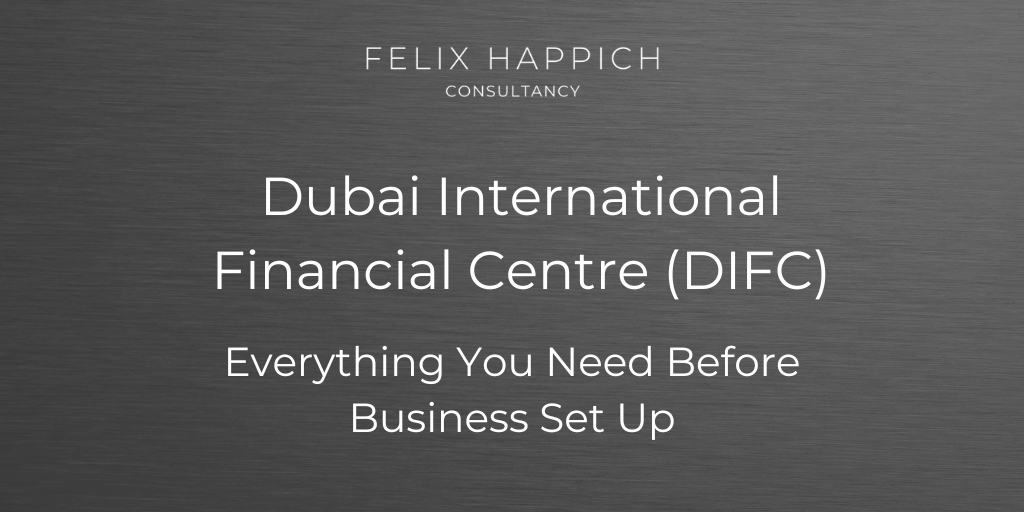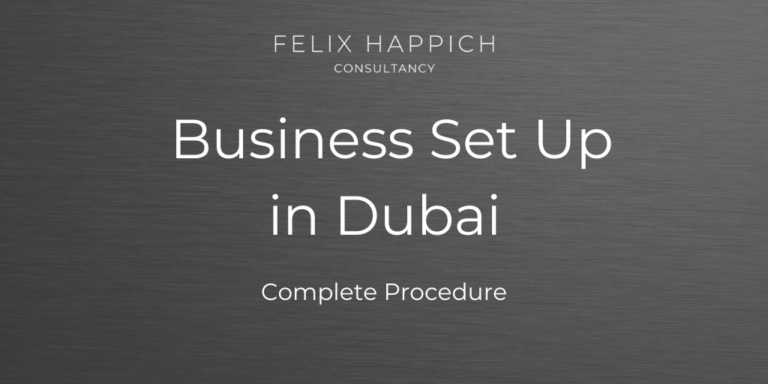The Dubai International Financial Centre (DIFC) Free Zone is a leading global financial hub, strategically positioned at the crossroads of Europe, Asia, and Africa. Established in 2004 by the Dubai government, DIFC has grown to host over 3,700 active registered companies as of 2024, including multinational corporations, banks, and law firms. Its location within Dubai’s Financial District near Sheikh Zayed Road and Dubai International Airport provides unmatched connectivity and access to a $3 trillion regional economy spanning the Middle East, Africa, and South Asia (MEASA). This prime location supports efficient business operations and international trade.
DIFC operates under an independent legal system based on English common law, regulated by the DIFC Authority, which ensures transparent and business-friendly governance. The Authority offers a full suite of services, including company registration, licensing, regulatory compliance, and dispute resolution. This framework creates a secure and predictable environment favored by global investors and businesses.
One of the most attractive features of the DIFC Free Zone is its tax regime. Under UAE’s Federal Decree-Law No. 47 of 2022, companies enjoy zero percent corporate tax on income for 50 years, along with full foreign ownership and capital repatriation rights. However, some sectors, such as oil, gas, and banking, face specific tax obligations under separate regulations. These benefits make DIFC a preferred destination for businesses aiming to maximize profitability and reduce tax burdens.
The DIFC ecosystem supports diverse business activities, including finance, insurance, technology, and professional services, making it an ideal hub for online, e-commerce, and small businesses. With a workforce exceeding 25,000 professionals, the Free Zone fosters innovation and growth by offering advanced infrastructure, flexible licensing options, and investor-friendly regulations. This article will explore the DIFC Free Zone’s structure, benefits, regulatory environment, setup requirements, costs, and investment opportunities, providing a comprehensive guide for entrepreneurs and investors looking to establish their presence in this dynamic financial center.
What is the DIFC Free Zone?
DIFC Free Zone is a financial hub that operates as a special economic zone in Dubai. It offers an independent legal framework based on English Common Law. It mainly supports financial services, fintech, and innovation-driven enterprises. DIFC provides a transparent, regulated, and tax-efficient platform. This zone ensures investor confidence by offering full foreign ownership and 100% profit repatriation. Companies registered here are governed by the DIFC Authority and regulated by the Dubai Financial Services Authority (DFSA). The zone acts as a gateway connecting Asia, Europe, and Africa, offering a stable, globally recognized platform for regional and international business operations.
Is DIFC Free Zone Tax-Free?
Yes, the DIFC Free Zone offers significant tax advantages. Under the UAE Federal Corporate Tax Law (Federal Decree-Law No. 47 of 2022), Qualifying Free Zone Persons are subject to a 0% corporate tax rate on qualifying income. However, this benefit is contingent upon meeting specific criteria, such as maintaining adequate substance in the UAE and deriving income from qualifying activities. Non-qualifying income may be taxed at the standard 9% rate.
Where is the DIFC Free Zone Located?
DIFC is strategically situated in the heart of Dubai, along Sheikh Zayed Road, nestled between the Emirates Towers and the Dubai World Trade Centre. This prime location offers seamless connectivity to major business districts, airports, and ports, enhancing its appeal to international businesses seeking regional headquarters.
Who Established the DIFC Free Zone and When?
The DIFC Free Zone was established in 2004 by the Government of Dubai, under the leadership of Sheikh Mohammed bin Rashid Al Maktoum. The initiative aimed to position Dubai as a leading global financial center by providing a world-class infrastructure and a business-friendly environment that adheres to international standards.
What is the DIFC Authority?
The DIFC Authority is the governing body responsible for the strategic development and administration of the DIFC Free Zone. It oversees the operational management, ensuring that the center remains a leading financial hub. The Authority provides a range of services, including licensing, registration, and regulatory compliance support, facilitating a conducive environment for businesses to thrive.
What are the Benefits of the DIFC Free Zone?
Setting up a business in the DIFC Free Zone offers numerous advantages that cater to the needs of financial institutions and professional services firms. These benefits support growth, innovation, and a streamlined business environment. Some of the main benefits are listed below;
100% Foreign Ownership:
DIFC allows full foreign ownership, eliminating the need for a local partner. This ensures businesses retain complete control and flexibility over their operations. According to Dubai-Sensor.com, this policy has attracted over 3,700 companies, boosting foreign direct investment significantly.
Independent Legal System:
DIFC’s legal system is based on English common law, providing transparency and predictability. This framework is trusted by global firms, reducing legal uncertainties. Ogier and DIFC sources confirm it supports dispute resolution under an internationally recognized jurisdiction.
Robust Regulatory Framework:
The Dubai Financial Services Authority (DFSA) enforces strict regulations covering financial services, enhancing market integrity. DFSA’s oversight is internationally acknowledged, increasing investor confidence and safeguarding against fraud.
Tax Efficiency:
Companies benefit from a 0% corporate tax on qualifying income for 50 years under UAE law, boosting profitability. DIFC and ms-ca.com report this advantage attracts high-value firms, especially in finance and tech sectors.
Strategic Location:
DIFC’s position near Dubai International Airport offers direct access to MEASA markets worth over $3 trillion. This gateway supports trade and investment, connecting businesses to fast-growing economies in the region.
World-Class Infrastructure:
DIFC provides modern office spaces, cutting-edge IT networks, and business services. These facilities support operational efficiency and innovation, crucial for financial and tech enterprises.
Extensive Business Ecosystem:
Hosting over 6,000 active companies, DIFC creates a collaborative environment that encourages partnerships and growth. This ecosystem is key to networking and expanding business opportunities across sectors.
These benefits collectively position DIFC as a top choice for businesses seeking regional dominance and international reach.
What Makes DIFC Free Zone a Better Choice for Online Businesses?
DIFC offers a supportive environment for online businesses, providing access to a robust digital infrastructure and a tech-savvy talent pool. The center’s commitment to innovation is evident in its initiatives to attract fintech and e-commerce companies, making it an ideal location for online ventures seeking growth in the MEASA region.
What Makes DIFC Free Zone a Better Choice for E-commerce Businesses?
E-commerce businesses benefit from DIFC’s strategic location, advanced logistics network, and supportive regulatory framework. The center’s proximity to major markets and its emphasis on digital transformation provide e-commerce companies with the tools and environment needed to scale operations effectively.
What Makes DIFC Free Zone a Better Choice for Small Businesses?
Small businesses find DIFC appealing due to its flexible licensing options, access to a diverse business community, and comprehensive support services. The center’s infrastructure and resources are tailored to accommodate the unique needs of SMEs, facilitating their growth and integration into the global market.
What are the Investment Opportunities for Foreigners in the DIFC Free Zone?
DIFC presents a plethora of investment opportunities for foreign investors, driven by its stable economic environment and strategic initiatives. The center’s focus on financial services, fintech, and professional services creates a fertile ground for investment.
- Financial Services: With a concentration of over 600 financial institutions, investors can tap into a mature and dynamic financial sector.
- Fintech Innovation: DIFC’s fintech ecosystem supports startups and investors aiming to revolutionize financial services through technology.
- Professional Services: The demand for legal, accounting, and consulting services is high, offering lucrative opportunities for investors in these domains.
- Real Estate: Investing in commercial real estate within DIFC provides stable returns, given the high demand for premium office spaces.
- Educational and Training Services: As businesses grow, there’s an increasing need for professional development services, presenting investment prospects in the education and training sectors.
These opportunities are bolstered by DIFC’s commitment to fostering a business-friendly environment and its strategic position in the global financial landscape.
What are the Most Invested Sectors in the DIFC Free Zone?
Financial services lead DIFC’s investments, comprising over 45% of registered firms. Fintech follows, growing at 25% annually. Legal services and consulting also rank high, driven by DIFC’s regulatory framework and global connectivity, cementing its position as the MEASA region’s top financial hub.
What are the Rules and Regulations of DIFC Free Zone?
The DIFC Free Zone operates under a unique legal system based on English common law, independent from UAE civil law. This legal structure is governed by the DIFC Authority and enforced by the DIFC Courts, ensuring judicial independence and transparency.
Key Regulatory Bodies and Frameworks:
- DIFC Authority
Oversees administrative and strategic development functions. - Dubai Financial Services Authority (DFSA)
Regulates financial services conducted in or from DIFC. - DIFC Courts
An independent English-language common law judiciary for resolving civil and commercial disputes.
Main Legal Instruments:
- Companies Law (DIFC Law No. 5 of 2018)
Outlines the framework for company formation, governance, and compliance. - Data Protection Law (DIFC Law No. 5 of 2020)
Ensures privacy and lawful handling of personal data. - Employment Law (DIFC Law No. 2 of 2019)
Defines employee rights, benefits, and employer obligations. - Operating Law and Regulations
Covers licensing, registration, and conduct requirements for all DIFC entities.
These laws are published on the DIFC Legal Database, offering full access to current and historic regulations. The regulatory framework is regularly updated to align with international best practices.
What are the types of licenses in the DIFC Free Zone?
DIFC Free Zone offers licenses to support diverse business needs. These fall under several main types. Financial Service Licenses cover banks, insurance firms, and asset managers, regulated by the DFSA. Non-Financial Licenses apply to law firms, corporate offices, and consultancies. Retail Licenses allow commercial activities such as stores and restaurants. Innovation Licenses support tech startups at lower costs. Holding Company Licenses offer structural flexibility for investment entities. Each license aligns with specific business activities approved by DIFC. You must match your planned operations with the correct license type to remain compliant and gain operational approval within DIFC’s structured framework.
What is the DIFC Free Zone license cost?
DIFC license costs vary based on activity. Financial service licenses range from USD 10,000 to 50,000, regulated by the DFSA. Non-financial and innovation licenses start from USD 1,500 annually. Additional costs include registration (USD 8,000), data protection fee (USD 500), and office lease charges. All fees must be paid upfront. DIFC also mandates minimum share capital based on business type, which may influence total initial setup expenditure.
DIFC Free Zone Visa
DIFC offers visa solutions tied to the type and size of the entity. Every registered entity in DIFC can sponsor visas for employees, partners, or dependents. The visa process is managed through the General Directorate of Residency and Foreigners Affairs (GDRFA) in Dubai. Visa quotas depend on the office size, with 1 visa typically allocated per 9–10 sq. m. of leased space. Visa validity ranges from 1 to 2 years. Medical tests, Emirates ID registration, and health insurance are mandatory. DIFC visa support services guide applicants through document submission, approvals, and residency stamping efficiently within a 10-day timeframe.
What is the cost of a DIFC Free Zone Visa?
The cost of a DIFC Free Zone visa varies depending on the visa type and duration. A standard employment visa costs around AED 7,000 to AED 8,000, including processing fees, medical tests, and an Emirates ID. Dependents’ visas are slightly cheaper, averaging AED 5,000. Renewal fees apply every 1-2 years. These costs exclude additional health insurance charges, which are mandatory for all visa holders in the DIFC Free Zone.
What are the types of visas in the DIFC Free Zone?
DIFC Free Zone offers several visa types to support business and family needs. These include employment visas for company employees, investor visas for business owners, and dependent visas for family members. Each visa type allows residency for 1 to 3 years. This system supports smooth business operations and family stability, aligning with the UAE’s flexible immigration policies that encourage foreign investment and talent retention in the DIFC Free Zone.
How can I get a Dubai International Financial Centre Free Zone Visa consultant?
To get a DIFC Free Zone visa consultant, you can approach licensed business setup and PRO service providers in Dubai. These consultants guide you through the visa application, document preparation, and approval processes. They ensure compliance with DIFC and UAE immigration rules, reducing delays. Many consultants offer packages covering business licensing and visa processing, making it easier for investors and employees to obtain visas smoothly and efficiently in the DIFC Free Zone.
How is DIFC Free Zone different than the other UAE free zones?
DIFC Free Zone stands out with its independent legal system based on common law, unlike other UAE free zones that follow UAE federal laws. It offers a unique financial ecosystem focused on banking, capital markets, and fintech. DIFC’s regulatory authority ensures global standards in governance and dispute resolution. Its prime location in Dubai’s financial district adds prestige and access to international markets. While many free zones focus on specific industries, DIFC targets financial services and related sectors, making it a specialized hub for international finance and professional services in the UAE.
Do I need a consultant for a business in the DIFC Free Zone in Dubai?
Hiring a consultant for a DIFC business setup can simplify the process. Consultants have expertise in DIFC rules and procedures. They help prepare documents, ensure compliance, and communicate with the DIFC Authority efficiently. This reduces errors and saves time. Consultants also guide on license types, visa applications, and office setup options.
For new business owners unfamiliar with DIFC’s legal framework, a consultant adds valuable support. While not mandatory, their knowledge often speeds approvals and avoids costly mistakes. Choosing a reliable consultant ensures smooth registration, helping businesses focus on growth rather than administrative challenges. This service brings clarity and confidence to your DIFC setup journey.





